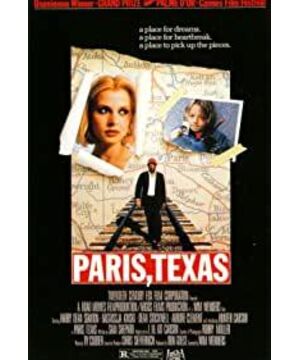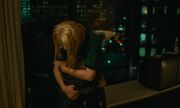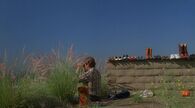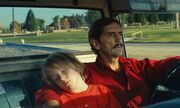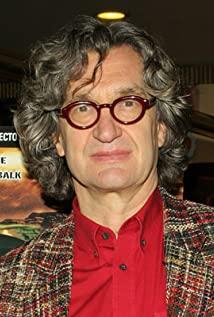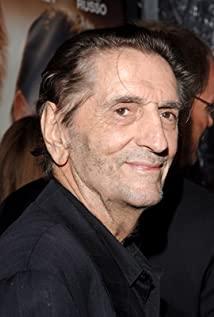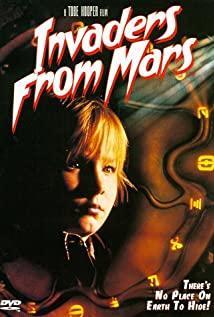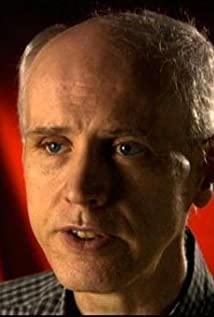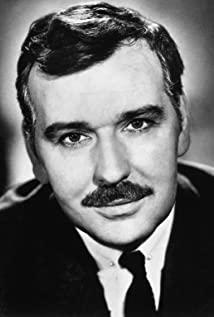"It's full of European obscurity."
"But it makes me quiet." I once discussed Wenders' other classic "Days on the Clouds" with friends. The soothing pace and modern colors are the text. The protruding twin peaks in the film are also the slate of his profound rational thinking through which he expresses the urgent contradiction between man and the city.
Paris is the name of a vacant lot in Texas that the hero Travis (TRAVIS hereinafter referred to as) bought with his wife Jane in Texas. They had wanted to live happily there together. It is also a virgin land that he has never reached in the film. The only thing that connects the Paris in his words or in his mind (which means the vacant land unless otherwise specified) and the land in Texas under his feet is a photo, a personal photo of a wandering road. When he no longer remembers the way to Paris, when he is full of hope but finally lost in the Mohabe desert, a photo with a folded corner becomes the only sustenance and proof of the dream of a beautiful life. The film begins with his wandering footsteps in search of Paris. Like a patient, he would not speak, act erratically, and would not fly because his feet did not want to leave the ground. Obsessed with a car with scars, everything stems from his nostalgia for the old days, the pursuit of the beautiful images of the old days, and his eyes must not be dimmed.
People and events in the past are undoubtedly the key to understanding the whole film, but except for a family life video that was once shot, the expression of the past has always been completed through the narrative of the characters. Te talked about his past with his wife to his son on the sofa, and he told his wife on the other end of the phone at the club about their past. The filming method of "reappearance of yesterday" was not adopted, and more emphasis was placed on the performance of the present. "You" as the audience is watching the most current state. The director cares about the characterization of the current characters rather than the clarity of the story. expression. Once upon a time, many directors were obsessed with storytelling, and Wenders was obsessed with the mental state of the narrator outside the story. What is also worth noting is the weight shared by the younger brother and his wife in the storytelling process and the authenticity effect of the multiple narratives.
Te and Jane's marriage used to be very happy, but the emptiness in his heart made him both dependent and suspicious of her. His unruly personality made him have no fixed job, and his suspicion made him suspicious of her work. Way eager to get her attention, he became angry when he failed, and finally made her run away from home. The child Hunter was taken care of by his younger brother and his wife, and Te started a wandering life of more than four years in search of Jane. The reunion of father and son makes everything seem so unfamiliar. Special and the child found Jane in a club. She treated him like other customers. When he finished his previous relationship in her crying, he handed the child to Jane, and he started a new wandering. He is an exile in his own city.
The film expresses several very modern issues. The incoordination between people and the life of the city, the pursuit after the ideal of life is shattered, the marriage after the ideal of love is shattered, and the lonely heart hidden in the corner of the city. Wenders is a master of road movies and once scoffed at the film industry with the "Road Trilogy". People's escape and the state of being on the road after injury are the focus of many works. Travis met the "howler" who complained about the society on the road. He claimed to be sober but acted crazy. I really don't know if it was those "weird people" who rebelled against society. Normal people" are sober, and this is a great project to deconstruct the existing social order. Derrida's death will bring back the topic. UPDIKE's "rabbit" Harry's escape, Gan's run across the United States in "Forrest Gump", and even the beat generation's hurricane on the road, wandering and running have become the saddest chapter in the contemporary American spirit, and they are also in the United States. The pain that a part of the population in a transformed nation will experience in the future.
The film starts with wandering and ends with continuing wandering, as if life is an episode in wandering. After the song ends, life disappears, but wandering will continue. Of course, this is not a universal discourse in the world, but this kind of seriousness and seriousness in facing life makes me awe-inspiring: leave forever, just because life is no longer perfect.
View more about Paris, Texas reviews


